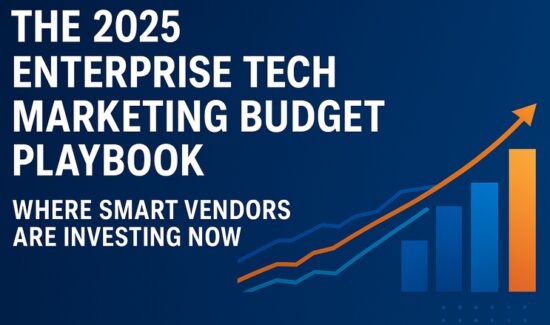Generative AI’s Impact on Digital Marketing So Far (And What’s Next?)


As part of Solutions Review’s Contributed Content Series—a collection of articles written by industry thought leaders in maturing software categories—Marc Hardgrove, the CEO of The HOTH, delves into the impact generative AI has had on digital marketing and where it might go in the future.
Generative AI burst onto the scene a moment ago, and it’s already shaking up how we approach content creation and marketing. From creating personalized content to predicting customer behavior, this cutting-edge technology is transforming the industry as we know it. But with all significant change comes uncertainty. Will creatives thrive or suffer? Have we destroyed art? How will this impact our day-to-day work? What does the future hold for businesses that want to keep ahead of their competition?
Changing the Digital Marketing Landscape
Generative AI is changing digital marketing in a multitude of ways. These shifts are happening across the spectrum from content creation to sales. One of the most obvious ways that generative AI transforms digital marketing is through image and video creation, as marketers can use machine learning algorithms to produce compelling visual content that resonates with their audience. This technology also allows for easy customization of images and videos based on different demographics, locations, or personal preferences.
Another area where AI alters the landscape is the ability to generate scalable personalized content. Companies can create unique and tailored content for each customer that feels natural without sacrificing efficiency. It also enables businesses to analyze consumer behavior more accurately than ever before. This data-driven approach allows marketers to identify patterns in customer interactions with their brand and optimize their strategy.
As generative AI continues to evolve and improve its capabilities, it will play an increasingly vital role in shaping the future of digital marketing strategies across various industries.
Creatives and Skeptics
Across the internet, a chorus of voices proclaims that AI is killing art and destroying the livelihood of artists. As with any new technology, many naysayers are skeptical about generative AI and its potential impact on digital marketing. Some argue that using AI in creative processes could lead to a loss of originality and human touch. However, it’s important to note that generative AI is not meant to replace human creativity but enhance it. The simple truth is that it lacks emotional depth and unique perspectives that only humans can bring.
The artists, designers, and writers who will thrive in this new era are the ones who see AI as a tool that they can use to improve their workflows and outsource their headaches. They’re the ones exploring and experimenting to see what this new tool can do. Automating specific tasks can free up time and mental energy for more strategic thinking, creativity, and complex projects.
What’s Next for Generative AI and Digital Marketing?
One thing is sure: generative AI will continue to shape the industry in ways we couldn’t have imagined before. Here are some potential developments that may be on the horizon. Incorporating Natural Language Processing (NLP) into generative AI could lead to more personalized content creation. NLP would allow machines to understand human language better, including slang and colloquialisms, making creating content that resonates with specific audiences easier.
Generative AI could integrate more with social media platforms like Facebook and Twitter, providing businesses with even more data about their customers’ interests and behaviors, which they could then use to tailor ads and other marketing materials specifically for them. In the future, it may be possible for AI to anticipate customer needs by analyzing vast amounts of data collected by businesses about consumer behavior patterns and market trends. This would lead enterprises down new avenues, including all aspects of predictive personalization.
Another possibility is that generative AI will begin taking over even more of our time-consuming processes based on the detailed data it collects. Perhaps AI can create entire strategies, campaigns, and schedules without human input. These are mundane tasks to complete but necessary in the digital marketing space.
While some may have reservations about using generative AI in digital marketing, it’s clear that this technology has immense potential for improving efficiency and driving results. As long as we approach its implementation with caution and mindfulness towards ethical considerations, we can expect great things from the future of generative AI in marketing.
How Businesses Can Prepare for the Future of Generative AI
As generative AI continues to shape the future of digital marketing, businesses need to arm themselves with the right tools and strategies to keep up. Here are some ways that companies can prepare for what’s ahead:
- Businesses must understand how generative AI works and how it will impact their industry. By doing so, they can identify potential opportunities and challenges.
- Generative AI can analyze vast amounts of data much faster than humans ever could. Businesses can make informed decisions based on real-time insights and adjust their campaigns accordingly, but investing in data analytics is essential.
- Keeping an open mind toward collaboration with third-party vendors specializing in generative AI technology will help companies stay on top of current trends in this rapidly expanding environment.
- Ensuring employees have the skills to work alongside these new technologies should be prioritized. Companies must invest time in training staff members on emerging tech like machine learning algorithms or natural language processing systems.
- Concerns about privacy and ethics regarding using AI in marketing can’t be overlooked. Businesses need to prioritize transparency and ensure that they are collecting data ethically and using it responsibly so they don’t fall foul of regulations.
By considering these tips now, businesses can set themselves up for success as they navigate this exciting field of generative AI technology.
Take This Thought With You
From creating personalized content to automating so many aspects of creation, this technology has allowed businesses to innovate, improve their marketing strategies, and put their energy to use in more creative ways. While there may be concerns about the future with this technology growing so fast, it’s important to remember that generative AI is simply an aid for marketers, not a replacement. The human touch will always be necessary when making creative decisions and shaping brand identity.
Generative AI offers exciting opportunities for innovation and efficiency in marketing. By embracing this technology and using it to supplement and complement our skills, we can achieve even greater success in digital marketing.





















